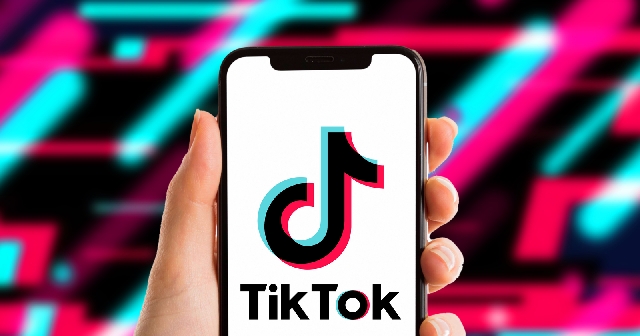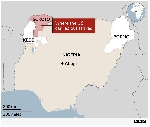UK: TikTok banned on government devices
 Social media platform TikTok
Social media platform TikTok
Britain is to ban the Chinese-owned video-sharing app TikTok from ministers’ and civil servants’ mobile phones, bringing the UK in line with the US and the European Commission and reflecting deteriorating relations with Beijing.
The decision marks a sharp U-turn from the UK’s previous position and came a few hours after TikTok said its owner, ByteDance, had been told by Washington to sell the app or face a possible ban in the country.
The UK government’s announcement was made on Thursday by Oliver Dowden, the Cabinet Office minister, in the Commons. He said the ban was “with immediate effect.”
The decision follows a review of TikTok by government cybersecurity experts that began in November, Dowden said, and will cover ministers’ and civil servants’ work phones, but not their personal phones. “This is a proportionate move based on a specific risk with government devices,” he added.
The UK Cabinet Office said TikTok required users to give permission for the app to access data stored on the device, which is then collected and stored by the company. Allowing such permissions gives the company access to a range of data, including contacts, user content, and geolocation data. Dowden said this justified the ban.
At least two cabinet ministers use TikTok. Michelle Donelan, the science and technology secretary, and Grant Shapps, the energy security and net zero secretary, have an account on the app, which is used by millions of young people and many celebrities and influencers.
The decision brings the UK in line with the US government and the European Commission, both of which announced similar bans on TikTok in the past month, and it demonstrates how fast western trust in China and TikTok has deteriorated in recent months.
But it marks a sharp reverse from the UK’s previously relaxed position. Just over a fortnight ago Donelan said the UK would not follow other governments and that the decision to install the app should be for an individual politician or minister to make. “As a Conservative, I strongly believe in personal choice,” she said.
A TikTok spokesperson said the company was disappointed. “We believe these bans have been based on fundamental misconceptions and driven by wider geopolitics, in which TikTok, and our millions of users in the UK, play no part. We remain committed to working with the government to address any concerns.”
The company said it had begun work on “a comprehensive plan” to protect European user data, including storing UK user data in its European datacentres and including third-party independent oversight of its approach. TikTok has acknowledged that UK personal data goes abroad, including to China, for its global staff to undertake certain “important functions”.
Labour’s Angela Rayner accused the government of being “behind the curve with sticking plaster solutions” given the previously announced bans abroad – and asked why the “specific risk” only applied to central government phones and tablets.
The party’s deputy leader also asked whether there had been “a root and branch review” of the use of mobile phones by ministers, referring to the feared hacking of Liz Truss’s phone when she was foreign secretary and Matt Hancock’s WhatsApp messages, which ended up in the hands of the Daily Telegraph.
“Can he say if there were any discussions during this process about the use of private messaging such as WhatsApp and email by ministers?” Rayner asked MPs. Dowden replied saying that ministers received “extensive advice when they take office” and that the government was updating its guidance on private messaging by ministers.
Iain Duncan Smith, a Conservative MP who has repeatedly raised security concerns about China, said ministers and officials’ personal phones also should be covered by a ban because “private phones will remain on their desks”. He added: “The point I’d make is you can’t stop there.”
But in answer, Dowden said there was “a balance the government has to try to get right”. He said ministers were made aware of the rules that substantive government business should only be conducted on government devices.
Source: theguardian.com
Trending World

Chronic water shortages dampen holiday mood in Tanzania's biggest city
18:21
Libya's army chief killed in air crash in Turkey
13:04
Venezuela accuses US of 'extortion' over seizure of oil tankers
12:21
9 arrested in Italy for allegedly raising millions for Hamas
00:08
Israel recognises Somaliland as independent state, Netanyahu says
01:42
US launches strikes against Islamic State in Nigeria
01:38
Living in fear of Lakurawa - the militant group Trump targeted in Nigeria strikes
19:31
US pledges $2bn for humanitarian aid, but tells UN 'adapt or die'
19:21
Trump says US will keep or sell oil seized from Venezuela
17:32
Gunmen abduct 28 Muslim travellers in central Nigeria
16:01



